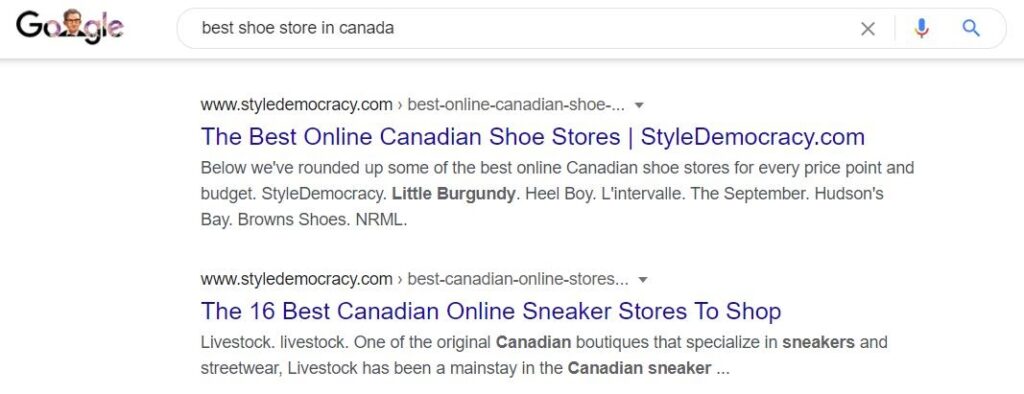When it comes to self-education on SEO best practices, the resources available online can lead down various rabbit holes. Inside of this rabbit hole, you will find helpful information, strategies and most likely you see the word “blog” more times than anything else.
First off, it is important to understand what SEO is in its simplest form.
What is SEO?
Search Engine Optimization is the method in which you optimize your online presence (website), so it can be found and ranked in their listings by search engines such as Google, Bing, and Yahoo. This topic has been extrapolated into the most intrinsic strategies that may prove to be overkill. It’s a good starting point to use our primary human strength – common sense.
To reiterate, identifying how people search online and could find your website or company, allows you to put things in place to be found by those people. Using that common sense approach from both a consumer and business standpoint, what are you typing into search engines to find what you are looking for?
The answer – a reverse-engineered strategy to give you the results you see. Example below.
Fig. 1

Say if you have a reasonable grasp on SEO and currently operate a company website, personal blog, eCommerce store, promoting courses, etc. You may be wondering what should I be looking for to make it better? Or how to implement anything to increase your ranking on search engines.
What does ranking mean?
Rank score and ranking on search engines refer to what listing number you receive on the results page after clicking that search button. The algorithms put in place ‘crawl’ your website pages, track keywords, and topical relevance to measure the most relevant information to show to the user who made the search.
As you have seen in your search results, a company such as Google can crawl millions of websites in milliseconds and show you the answers you were searching for.
Going back to SEO best practices, understanding the importance of keywords and search queries can offer you vital information to help you rank much better.
SEO Best Practices
Now here is where this topic can get e over-explained. Fortunately, developers, programmers, and marketing veterans have been able to co-operate in such a way where there are other means to utilize to rank better on search engines, falling under the umbrella of an SEO strategy.
Here are a number of the primary means by which self-marketers, marketing agencies, and internal digital marketing professionals increase their visibility and can be rank better on search results.
These can be referred to as Search Engine Result Pages, or more commonly referred to as SERP’s. In conducting a SERP analysis, it can provide you information on a certain website’s page and domain authority, and how it ranks on search engine listings.
Site Crawl
As a good starting point, a quick check to see if search engines such as Google have indexed the webpages of your website. Keep in mind, your subsection webpages usually tend to have more information (keywords) about your products or services than your landing page. If not, you have zero hope of being found by a user. The way to check is to place the word “site:” before your URL.
Example: “site:www.mywebsite.com”
Google’s results will show what pages are and are not indexed by their system. While it can be uncommon, if your webpages have not been indexed, you can submit a new site crawl from Google, find out how to do that here.
Backlinks
In the process of understanding how to increase your SEO, backlinks can be very helpful. They can be better described as hyperlinks on other websites that link back to yours. The more of these backlinks you have, depending on the quality of the other website’s page authority, the better you will rank on search results.
This can be a time-consuming task where relationships, networking, and cold outreach are your tool kit. There are millions of blogs, journalists looking for content, and partner companies that could be interested in collaborating.
While this task may seem difficult, there is the opportunity to include backlinks for SEO as part of your marketing budget, as some bloggers and journalists charge a fee to have your website or company featured as well as to guest blog on their website. There are multiple ways to buy backlinks, or even pay content writers, bloggers, or influencers to have your website backlinked on their website.
The crux here is to be aware of the domain or page authority of the third-party websites that are more appropriate for your website. There are great resources for checking where you are already backlinks, and to identify high authority websites that would be more valuable to have backlinks be featured on such as Moz Link Explorer or Ubersuggest by Neil Patel.
This brings me to my next point – keyword research.
Aren’t Keywords just regular words?
Yes, but there is a little more to it.
Keywords in relation to SEO refer to words that are used in search queries for a user to find relevant information. The popularity of the keywords used in these search queries is a metric known as “monthly search volume”. There is two ways to look at keyword research.
The first is to hire a specialist or avail of the online tools available to discover what keywords your website is currently ranked for, and what the monthly search volume is for each of those keywords.
The second is to conduct research on what keywords your website wants and should be ranked for. Where many website owners miss a step is by not taking into account your website name is unique, thus to find your website a user would need to type in your exact name to find your website. This leads you to look outside the box for what users are searching for in your market.
By conducting keyword research, it can define popular keywords by search volume that you could implement into your web pages. Going back to the ‘reverse engineering’ method, ask yourself, what would a user type into Google that would lead them to your website? Knowing that allows you to implement those keywords into webpages such as blog posts, product or service pages, and/or your home page
This can be done using online tools such as Google Analytics, SEMrush, and Moz.
Example – If your website offers quotes on car insurance in Alberta, in the efforts of optimizing your SEO, you would conduct research on the higher volume search queries by keywords. Such as “car insurance in Alberta”.
That would then lead you or the website developer to include those higher volume keywords within the text on your website. There is more to that in terms of heading format and word count, but I’ll leave that to a future blog post.
Do I have Broken Links somewhere on my website?
Broken links are a simple fix. As an example, say if you a blog post on your website that links to another page either on your website or a third party website, and that page no longer exists. This is a broken link.
They can be detrimental to your SEO as search engines rewards websites that have up-to-date pages with good quality content. When a company like Google crawls your web pages to provide them on its search results page, it will lower your ranking if that page contains a broken link.
A good way to test is to organically click on each of the older links you have on your website. If they are linked to a webpage that says “Error 404” or “This page no longer exists”, it is a good move to remove that link from your web page. In essence, it is important to check for this on every web page on your website. It is possible to reach out to the website owners that the broken link exists and asking them to update that page, as it still benefits SEO to keep those backlinks.
A great tool to identify broken links for you are Google’s chrome extension Broken Link Checker, NeilPatel.com, or Moz Link Explorer. These tools will scan all the links you have on your website and identify which are broken.
Takeaways
While there is a lot more to SEO when you dive down the rabbit hole. Noted in this post are the primary things to be aware of if you are interested in auditing and improving your SEO. From working with multiple clients on improving their SEO, working with an agency can take all of this off your plate. If you are looking to self-improve your website, these are four key things to consider:
- Analysis of what users search to find your website.
- Indexing your pages.
- Backlinks and Broken Links.
- What keywords you currently rank for and what keywords could be more beneficial to your visibility.




